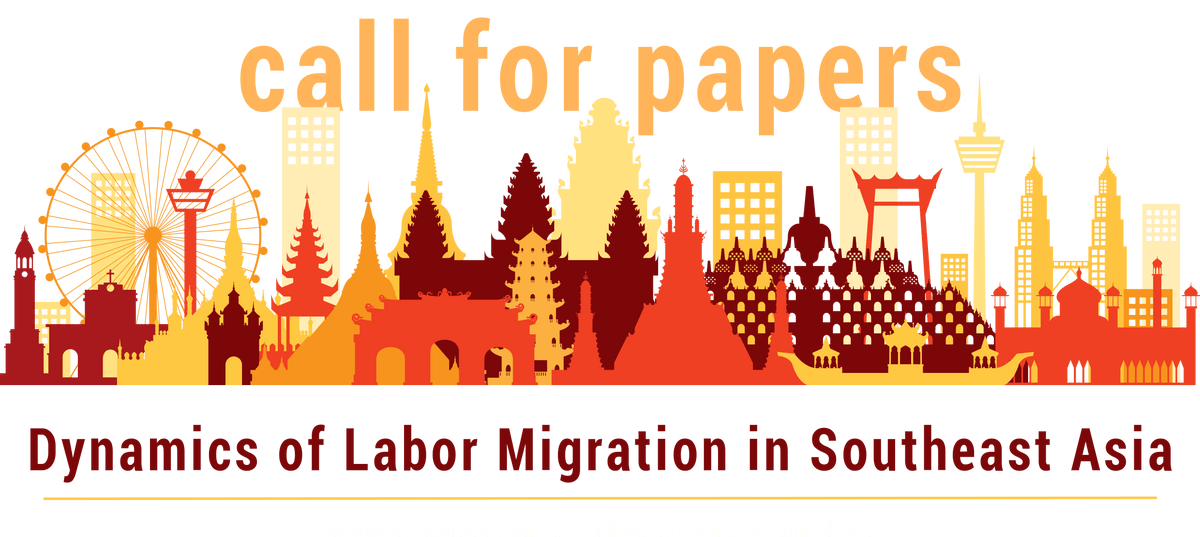Rising Voices in Southeast Asian Studies
A SEAC/AAS Initiative for AAS-in-Asia 2024
Association for Asian Studies in Asia Conference 2024 (AAS-in-Asia 2024@Yogyakarta)
The Southeast Asia Studies Council (SEAC) of the Association for Asian Studies (AAS) is seeking paper proposals from up-and-coming scholars – including graduate students – to join a “Rising Voices” panel on the topic of “Dynamics of Labor Migration in Southeast Asia.” (See below for eligibility). We seek to recruit emerging scholars from Southeast Asian countries to form a panel for inclusion in the 2024 AAS-in-Asia Conference to be held in Yogyakarta, Indonesia with the partnership of Universitas Gadjah Madah from 9th to 11th July 2024. SEAC will provide partial financial assistance for presenters to attend the meeting.
In addition to receiving financial support from AAS/SEAC, the Rising Voices Panel also has financial support provided by TRaNS: Trans-Regional and -National Studies of Southeast Asia. Panelists are expected to submit their papers to the journal after the conference.
Panel Topic Description
Labor migration is a global phenomenon that has taken shape in very distinctive ways in Southeast Asia. The region has seen the flows of migrants from poorer to richer countries, from rural to urban areas within a nation-state, and through both formal and informal channels, whether through navigating complex visa regimes or slipping past the gaze of the state while crossing borders. These movements have created a class of workers that are generally clustered in a low-wage zone, although some would eventually attain mobility up the social ladder. The journeys they undertake in search of new opportunities can be perilous, exacerbated by loose labor protection laws in many Southeast Asian states and in some cases, a backlash of nativist sentiment.
This panel invites papers that examine the lived experiences of such migrants, the processes that shaped these experiences and probe the fraught question of rights for migrant workers. We welcome studies from a wide range of perspectives, including history, politics, anthropology, cultural studies, gender and sexuality studies. Geographical focus is open though we encourage papers with an Inter-Asian slant. Panelists may study labor migration flows within Southeast Asia or they may opt to examine outflows and/or inflows of migrants between Southeast Asia and other parts of the world. If the latter, the focus of the paper should be on the Southeast Asian aspect of these labor migrations.
Some questions the panel may consider include:
- How can we characterize labor migration patterns in a Southeast Asian context – either within a Southeast Asian country or across borders in Southeast Asia and the world?
- Can migration promote labor mobility, broadly construed? How do states, employers and technology facilitate or impede such mobilities?
- What challenges do migrant workers face? What types of protection, rights and opportunities are they afforded?
- How does gender impact labor migration? How might gender and/or sexuality affect the vulnerability of migrant workers?
- How might we understand the co-existence and interaction across different groups of workers – eg. between migrant worker and local colleagues; between free and unfree migrants?
Eligibility and Selection Criteria
We seek papers by Southeast Asian scholars who are early career scholars, or “rising voices.” Rising voices are defined here as advanced graduate students (currently writing dissertations based on original field or archival research) or untenured faculty members (including tenure- track assistant professors, adjuncts, and lecturers, or the approximate equivalent based on the academic tradition from which the scholar is coming). Applicants may be currently enrolled as students in, or employed by, any institution of higher education in the world. However, preference may be given to students or faculty currently based at underfunded institutions in Late Developing Countries (LDC) in Southeast Asia. (Please note that the definition of LDC used by the AAS excludes the following Asian countries: Australia, Hong Kong, Japan, New Zealand, Republic of China (Taiwan), Republic of Korea (South Korea), and Singapore). In addition to the stated goal of supporting rising voices from Southeast Asia, the primary criteria for selection will be the quality of the paper proposals as well as the way selected proposals work together as a viable panel.
Submission
The panel is intended to be a Southeast Asia-focused panel. Submissions that do not substantively address issues pertaining to the region will not be considered.
To submit a paper proposal, please submit the following, in the order listed below, all in a single Microsoft Word file or PDF document, by October 20, 2023. Do include the following:
- Applicant’s Name, affiliation, and contact information, clearly indicating applicant’s current country of residence.
- Paper abstract. 250 words in the format of the standard AAS paper proposal.
- Brief bio-sketch of 200-300 words describing current and recent scholarly positions, a brief sentence or two about current research, and any significant publications. The model for this should be the standard blurb one sees on a faculty or graduate student website.
- Current curriculum vitae.
Please save the file with the following filename convention: RisingVoicesAASAsia2024_ApplicantsFamilyName.doc
Please send your submission to Dr. Taomo Zhou at soh-shenzhen@ntu.edu.sg

